Women entrepreneurs have historically faced challenges starting a business. But women-led businesses have been the main drivers of the post-pandemic small business boom. We’ve collected integral women-in-business statistics and asked some iconic, female small business owners for their advice and insights.
If you are a woman in business or are aspiring to be one, these stats and tips will help you forge your business strategy and empower you to take the next steps.
US Women Entrepreneur Landscape in 2024
In the US, one in 10 women consider starting a business, and about one in six actually start one. It is only part of the world where actual woman-founded startups outnumber intended startups. These other numbers might shift your perspective on women entrepreneurs:
With women-owned businesses leading the growth curve since 2020, there has never been a more promising time to start a female-founded business. We asked five women founders across different industries what advice they have for other women entrepreneurs. This is what they had to say.
Know That it’s Hard. Do it Anyway.
Women founders are more likely to face funding challenges than their male counterparts, with only about 2% of venture capital investment going to women entrepreneurs in 2023.1 So investors seemingly underestimate the potential of women-founded businesses.
Orion Brown, founder of the beauty brand Black Travel Box, encourages aspiring female entrepreneurs to exploit this underestimation.

Orion Brown founded Black Travel Box in 2017; her products were endorsed by Beyonce three years later. (Image source: Orion Brown)
“Ultimately, as a female founder, you’ll face many of the same challenges [as men] but the stakes are much higher.
Some of us use our underestimation as an element of surprise—essentially overdelivering where expectations were low and focusing on those business results—while others may take an iconoclast route and use it as an opportunity to speak out on the disparities of investment and biases inherent to partnerships and business development. But just because the playing field isn’t any more level doesn’t mean you shouldn’t go after what your heart knows you can dream and build.
And for those who are wide-eyed and believe the sky’s the limit? Keep that feeling. Protect it. You’ve got a long road ahead, and you’ll need that optimism every step of the way,” Ms. Brown told Fit Small Business.
Give Yourself Time to Succeed
In 2023, 60% of women-owned businesses were profitable.2 It can take two to three years for a new business to become profitable, and in 2023, nearly 50% of women-owned businesses were less than five years old.3 If you seek long-term success, give your business the time and resources it needs to succeed.

Attorney Keren de Zwart left a boutique securities firm to start a nimble legal practice dedicated to supporting entrepreneurs. (Image source: Keren de Zwart)
Keren de Zwart, owner of the legal services company Not Your Father’s Lawyer, advises, “One important consideration when starting a business is to give yourself enough runway to really try to get it off the ground. I’ve seen many people, women especially, give up after a few months, because they aren’t profitable yet and need to make a living. Side-hustling your business until it can replace your income is great, but it’s not always feasible. If you can, build yourself a savings of six to 12 months so that you can really go all in on the business and see if it has legs.”
Don’t be Afraid to Ask for Help
A majority of business founders strongly agree with the statement “being a founder is a lonely job.”4 But the success of your business does not need to fall solely on your shoulders.

Restaurateur and cookbook author Mary Sue Milliken co-founded RE:Her, a nonprofit accelerator for women-founded food and beverage businesses. (Image: Mary Sue Milliken)
Chef and cookbook author Mary Sue Milliken owns several successful restaurants in Southern California and Las Vegas. Thinking back on the early days of her career, Milliken says, “I wish I had known how easy it is to ask for advice and how gracious and generous most people are with helping someone starting a small business. At this point, I ask for help all the time and I didn’t know that was an option when I started.”
Find Your Community
A majority of business founders (76%) vent their business stress to their spouses; women entrepreneurs are 28% more likely to share their work stress with their spouses.5 A spouse can offer emotional support, but they’re unlikely to have as much relevant advice as a community of other entrepreneurs. Though 35% of women small business owners say finding networks of other minority or female business owners is challenging.6
But seeking out a business community can be worth it.
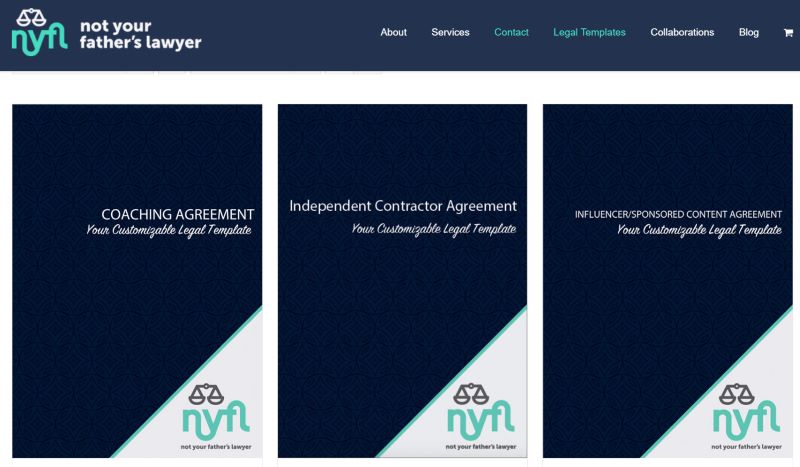
Keren de Zwart’s company, Not Your Father’s Lawyer offers templates in addition to personalized services. (Source: Not Your Father’s Lawyer)
Keren de Zwart says, “Find a community of like-minded business owners. Sometimes, your immediate circle of friends and family can’t support you in the unique ways you need as a business owner, but there are amazing communities online and in person that can fill those gaps and be a resource for information, support, and connections.
Depending on your industry, these organizations can be good places to start your search for a supportive business community:
- Office of Women’s Business Ownership: A department of the Small Business Administration (SBA), this office engages in advocacy, outreach and education for women founders.
- National Association of Women Business Owners (NAWBO): This dues-based membership organization hosts dozens of chapters nationwide and lobbies for women business owners’ interests, offering educational resources.
- Women’s Business Enterprise National Council (WBENC): This national association certifies women-owned small businesses and provides opportunities, resources, and engagement for women-owned businesses in multiple industries.
- Black Girl Ventures: A nonprofit dedicated to helping Black and Brown women entrepreneurs access capital for their businesses.
- Regarding Her Food (RE:Her): Mary Sue Milliken is a co-founder and Chairman of the Board of this nonprofit focused on accelerating the growth of woman-owned food and beverage businesses.
Collaborate With Like-Minded Businesses
Whether through cultural norms or neurobiology, women tend to be more collaborative than men in the workplace.7 Tamany Hall, real estate marketer and owner of The Simple Touches, encourages female founders to lean into this strength.
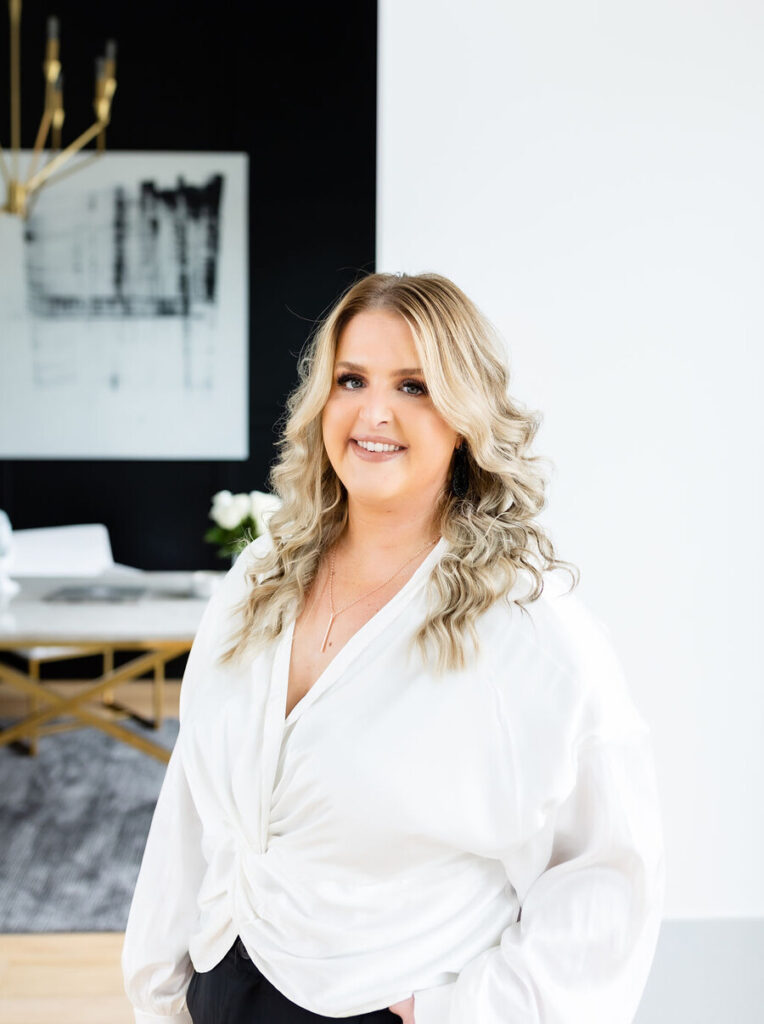
Tamany Hall is a former teacher who offers marketing classes alongside real estate marketing services. (Source: Tamany Hall)
“When I first started, I avoided collaborations like the plague, mainly because I didn’t understand them. But collaborations will skyrocket your reach. The key to a successful collab is finding someone who has the same target audience as you but offers a very different service. Then boom! You instantly double your exposure as you get exposed to their audience and vice versa. Win-win.”
Corner a Niche
In 2023, 15% of women founders started a business expressly to pursue their passion.8 In fact, women entrepreneurs are 20% more likely than men to establish businesses rooted in their passions.9 Focusing on your passion can help identify a business niche, which could be a key to your success. This strategy was a winning one for Tamany Hall.
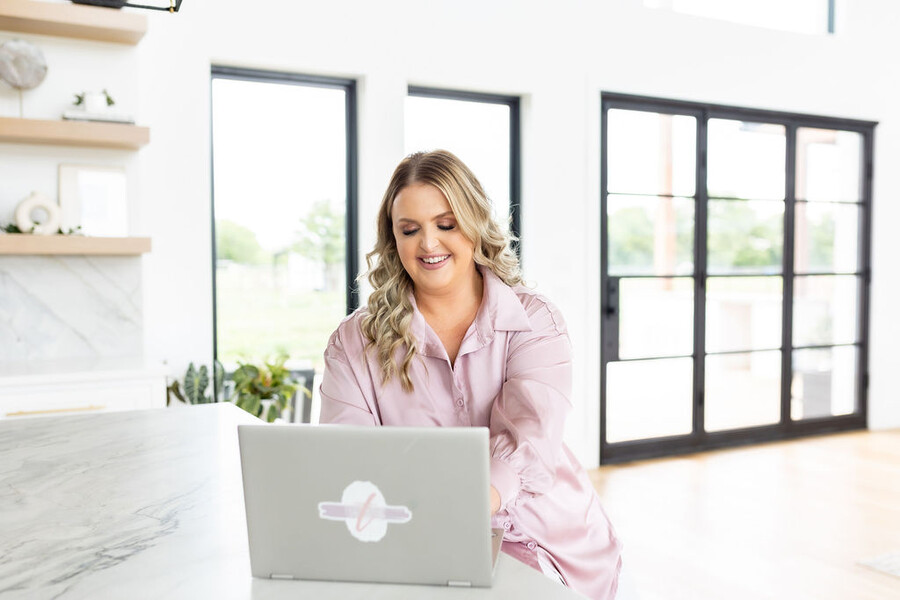
Tamany Hall started The Simple Touches in 2020, to leverage her real estate skills and have flexibility to spend time with her father after his ALS diagnosis. (Source: Tamany Hall)
“I know you want to be all things to all people, but I’ve learned it’s more harmful to be too broad than too niched. I found my niche by combining three aspects of my past, which put me in an industry without a lot of competition because not a lot of people have my specific background. Your niche is your superpower, and by narrowing your offerings to a few things in the same category, you become the best—and people will invest in the best,” Tamany says.
Practice Self-Care
Most entrepreneurs (72%) say their business has affected their mental health,10 and 81% of founders say they are not open about their stress. Women founders are more likely to feel this pressure, with 66% of women versus 54% of men saying they are “very stressed” about the future of their company. Women are also more likely to report feeling burned out; 43% of female leaders versus 31% of male leaders report feeling burned out.11
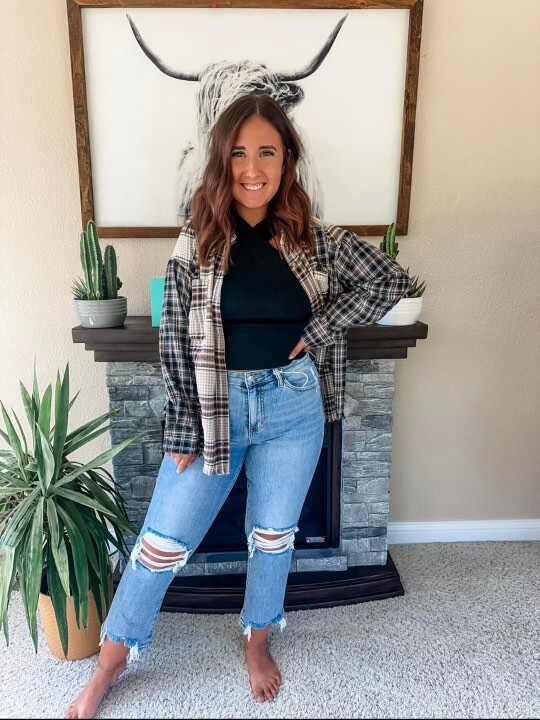
Alyssa Wagler started her retail business Top Notch Boutique in a converted mini-barn and now has a Main street storefront. (Source: Alyssa Wagler)
Alyssa Wagler, founder of retail and ecommerce brand Top Notch Boutique, knows this struggle well.
“My advice to fellow female entrepreneurs, especially those juggling multiple roles like being business owners and mothers, is to embrace self-care as a nonnegotiable priority and to delegate tasks whenever feasible. It’s OK not to please everyone all the time; setting boundaries and managing expectations is essential for preserving mental and emotional well-being amid the hustle and bustle of business ownership.”
Be Flexible to Grow
Around 6% of women-founded businesses have operated for over 20 years, and another 5% have been open for 16 to 20 years.12 If you are just starting out, this longevity can seem miraculous. But flexibility can be the key to growth and maintaining your passion for your business, as Mary Sue Millken has seen.

Once one-half of Food Network’s “Too Hot Tamales,” Mary Sue Millken (right) now co-owns several restaurants and sits on the board of trustees for the James Beard Foundation. (Source: Harper Collins)
“I’ve been in this business for 50 years and, like clockwork, every five to seven years I seem to be ready for something new,” says Milliken. “From running a small restaurant to growing it, to writing cookbooks, to radio, to TV, to opening restaurants in stadiums, it all feels like a natural shift because it keeps me really excited about what I’m doing and also allows for other people in my company to take the reins with those new ventures.”
Do Your Job
With or without collaborators, helpers, a supportive community, and a self-care routine, women entrepreneurs still have a business to run. It can help to remember that in all the static of running a business your job comes down to one thing.
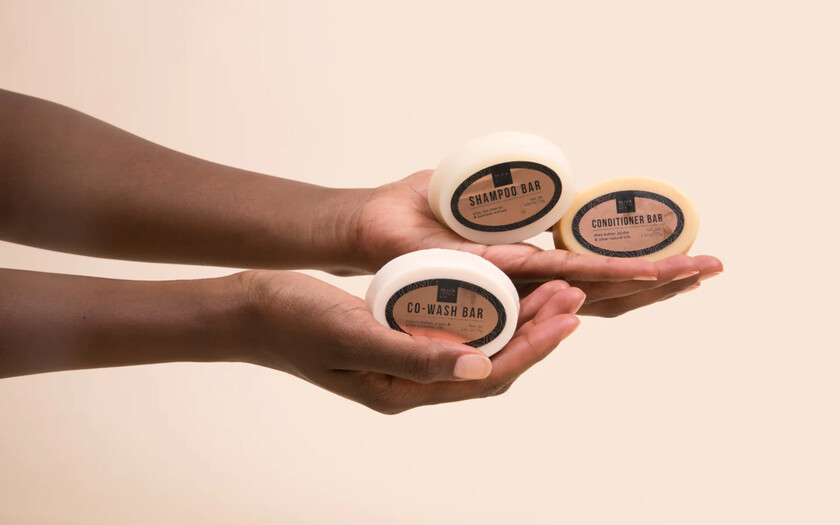
Orion Brown created Black Travel Box based on her own struggles to find beauty products while traveling. (Source: Orion Brown)
Orion Brown says it best, “The world might tell you that women cannot have it ‘all,’ but only you know what you’re capable of and what you’re hungry for. As an entrepreneur, your only job is to bet on yourself.
Bottom Line
If you want to pursue a passion or simply be your own boss, starting a business could be the right move. Striking out on your own may feel daunting, but if you know the risks, you can turn them to your advantage. You can’t go wrong giving your business time to succeed, collaborating with like-minded businesses, and being flexible as you grow. Find a community of other business founders to support you, and don’t be afraid to ask for help. Every new small business starts as only a dream, but if you bet on yourself, you can turn that dream into a reality.
If you’re ready to start your own woman-founded business, download our free starting a business e-book. Simply enter an email address, and we will send the book directly to your inbox.
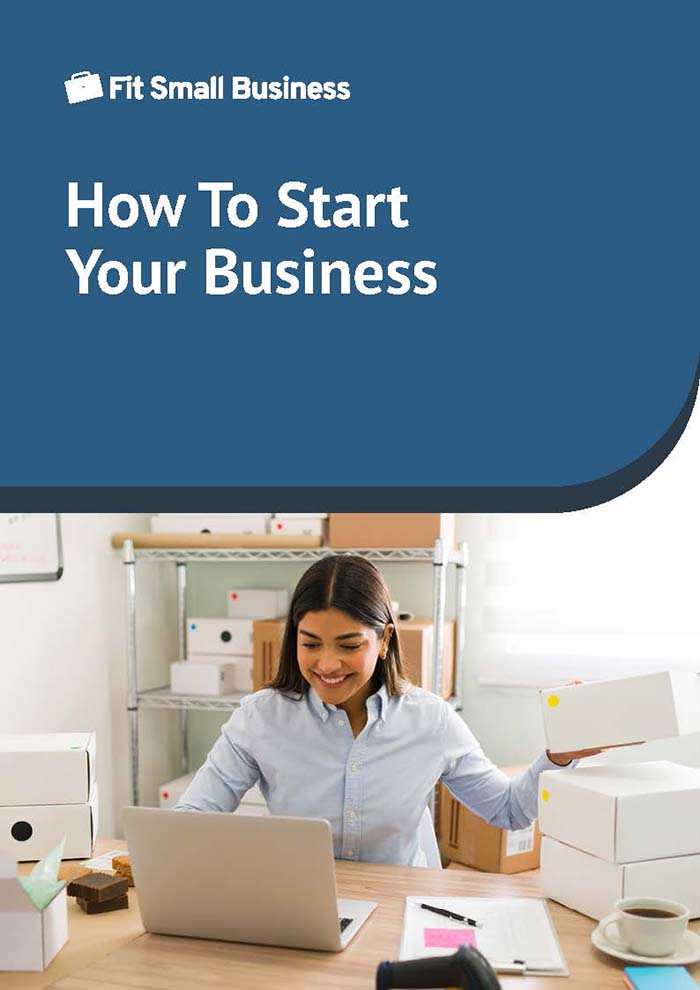
Thank you for downloading!
Quick Tip:
As you’re starting your business, it’s wise to register it as a legal entity, like an LLC. Doing this will protect your personal assets if a lawsuit were to occur against the business. You can register your business as an LLC through an online legal service.
IncFile is an online service that handles and files the paperwork so your business can become an LLC quickly.
Start your business today with IncFile for as little as $0 plus state fees with no contracts and no hidden fees.
Sources:
- https://pitchbook.com/news/articles/the-vc-female-founders-dashboard
- https://www.guidantfinancial.com/2023-small-business-trends/2023-women-in-business/
- https://www.guidantfinancial.com/2022-small-business-trends/2022-women-in-business/
- https://startup-snapshot.com/wp-content/uploads/2023/03/Startup-Survey_Final.pdf
- https://startup-snapshot.com/wp-content/uploads/2023/03/Startup-Survey_Final.pdf
- https://www.truist.com/resources/small-business/women-small-business-owner-survey
- https://learningtoleap.co.uk/neuroscience-trust/
- https://www.guidantfinancial.com/2023-small-business-trends/2023-women-in-business/
- https://www.guidantfinancial.com/2023-small-business-trends/2023-women-in-business/
- https://startup-snapshot.com/wp-content/uploads/2023/03/Startup-Survey_Final.pdf
- ttps://leanin.org/women-in-the-workplace/2022/were-in-the-midst-of-a-great-breakup
- https://www.guidantfinancial.com/2022-small-business-trends/2022-women-in-business/